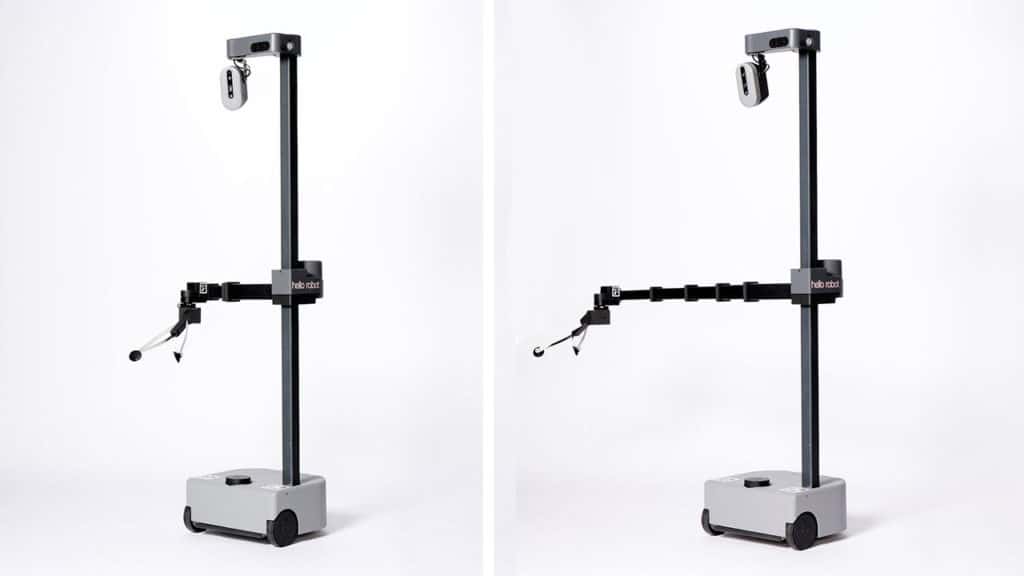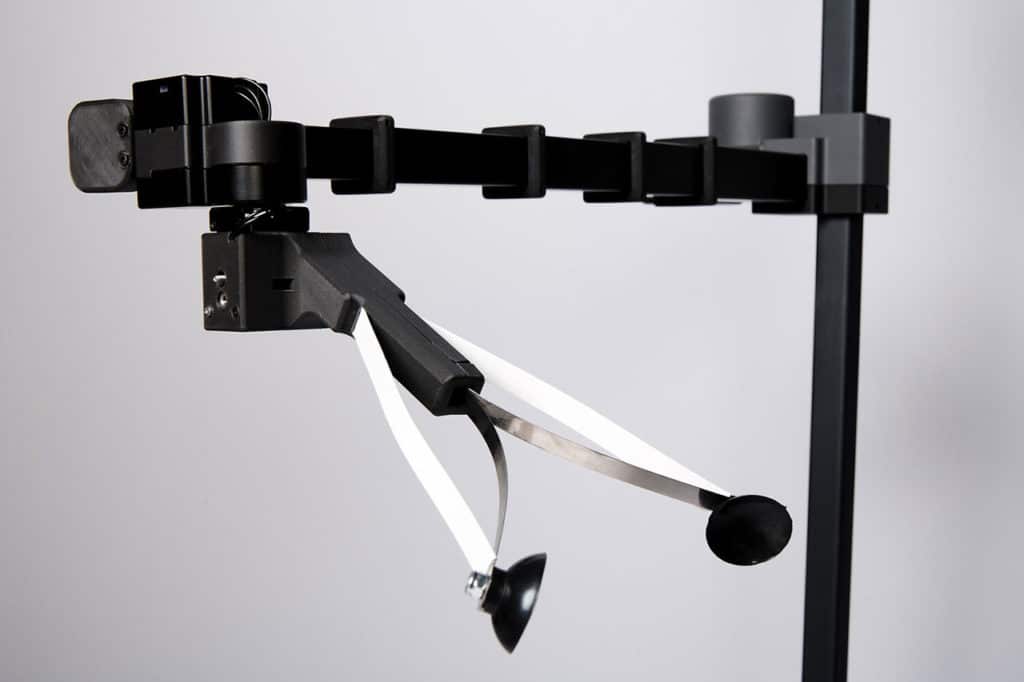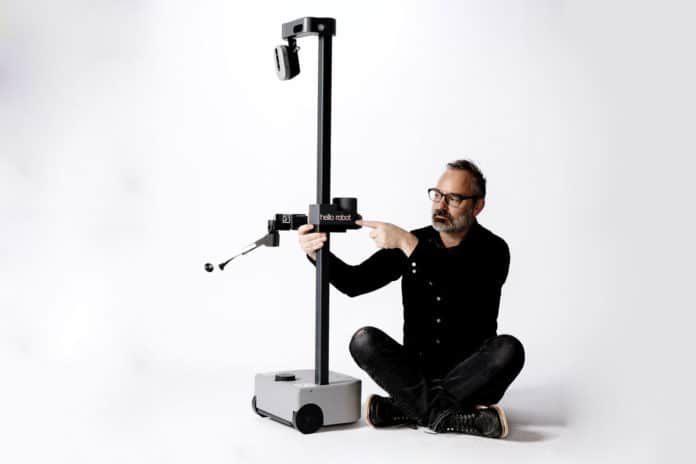Hello Robot, a startup founded by Google’s former Director of Robotics, Aaron Edsinger, and Georgia Tech robotics professor Charlie Kemp, has shown off its first robot, named Stretch. It is a creation that, in the long run, hopes to be able to help people, the elderly, or people with physical disabilities, with a range of household tasks.
The robot impresses with its structural simplicity. Instead of a humanoid, dog, or other creature with a pile of engines for as many degrees of freedom as possible, Stretch manages everything with the help of a compact wheeled-base and a slim telescopic arm. It is most reminiscent of a robot vacuum cleaner that has had a kind of gripping device mounted on top of it. However, the design seems to be functional, and the video below shows how Stretch could be used for various everyday chores at home.

Stretch is not an autonomous robot but is developed to be remotely controlled by an operator. The robot could, for example, perform various tasks for the elderly and/or the disabled who are unable to do certain things in the household themselves. The robot is able to pick up objects on the floor or reach them on top of the countertops.
The robot only weighs 51 lb (23 kg), making it easy to transport, and its small size (just 34cm wide and 33cm long) allows you to navigate in tight spaces. Its telescoping arm can extend 52cm beyond the base, and the wrist extends the reach, enabling the gripper to touch the back of a countertop or reach over clutter.

Of course, the Stretch is equipped with a stack of sensors and an Intel RealSense D435i RGB-D camera on a pan/tilt head with a wide range of motion for computer vision, including depth perception. The RP-LiDAR A1 laser range finder in the base provides a 340-degree field-of-view due to Stretch’s slender design.
At present, Stretch will be seen as a research platform for telepresence robots, and Hello Robot hopes that universities and others will develop Stretch for different purposes in the future. Stretch comes calibrated out of the box with open-source code from the low-level motor controllers to high-level autonomy demos. It also uses community favorites like Ubuntu, ROS, and Python.
The first version of Stretch, which is initially aimed at researchers, is priced at $17,950 – $98,950 for six units – and is available in the United States through the company’s website.
